Books
Antiquity. Arts + Culture. Entertainment. Philosophy + Religion. And more!
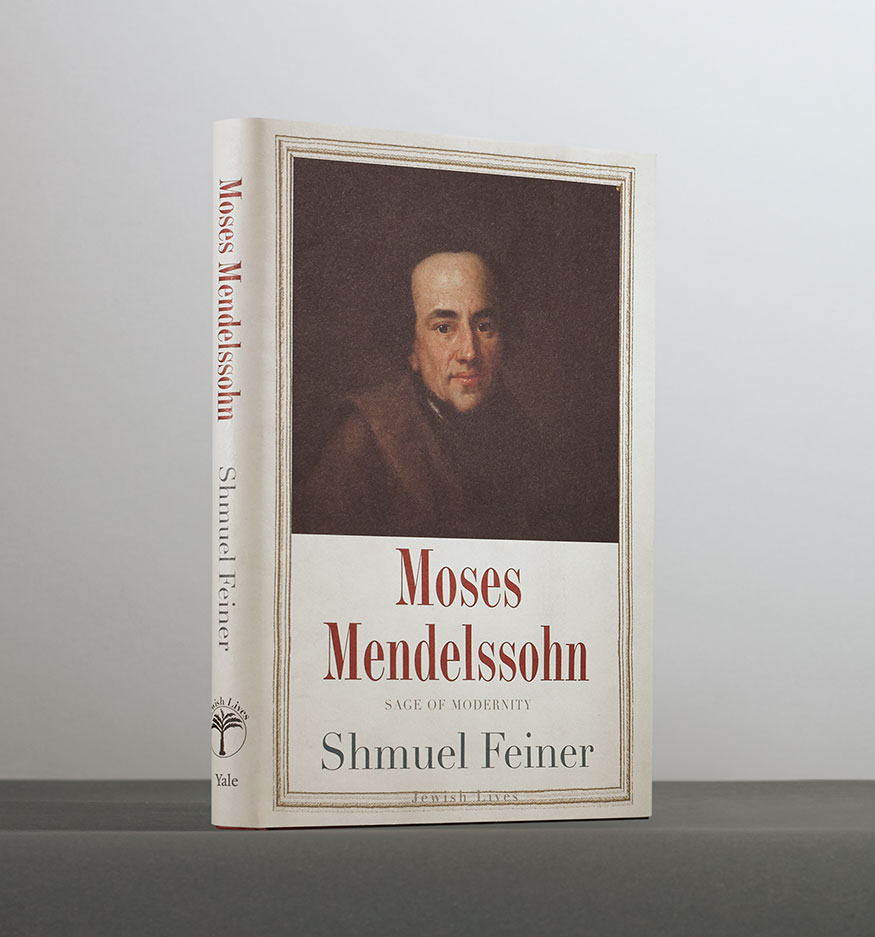
By Shmuel Feiner
Published November 23, 2010
248 pages
“A fascinating portrait” —Library Journal
The “German Socrates,” Moses Mendelssohn (1729–1786) was the most influential Jewish thinker of the eighteenth and nineteenth centuries. A Berlin celebrity and a major figure in the Enlightenment, revered by Immanuel Kant, Mendelssohn suffered the indignities common to Jews of his time while formulating the philosophical foundations of a modern Judaism suited for a new age. His most influential books included the groundbreaking Jerusalem and a translation of the Bible into German that paved the way for generations of Jews to master the language of the larger culture.
Feiner’s book is the first that offers a full, human portrait of this fascinating man—uncommonly modest, acutely aware of his task as an intellectual pioneer, shrewd, traditionally Jewish, yet thoroughly conversant with the world around him—providing a vivid sense of Mendelssohn’s daily life as well as of his philosophical endeavors. Feiner, a leading scholar of Jewish intellectual history, examines Mendelssohn as father and husband, as a friend (Mendelssohn’s long-standing friendship with the German dramatist Gotthold Ephraim Lessing was seen as a model for Jews and non-Jews worldwide), as a tireless advocate for his people, and as an equally indefatigable spokesman for the paramount importance of intellectual independence.
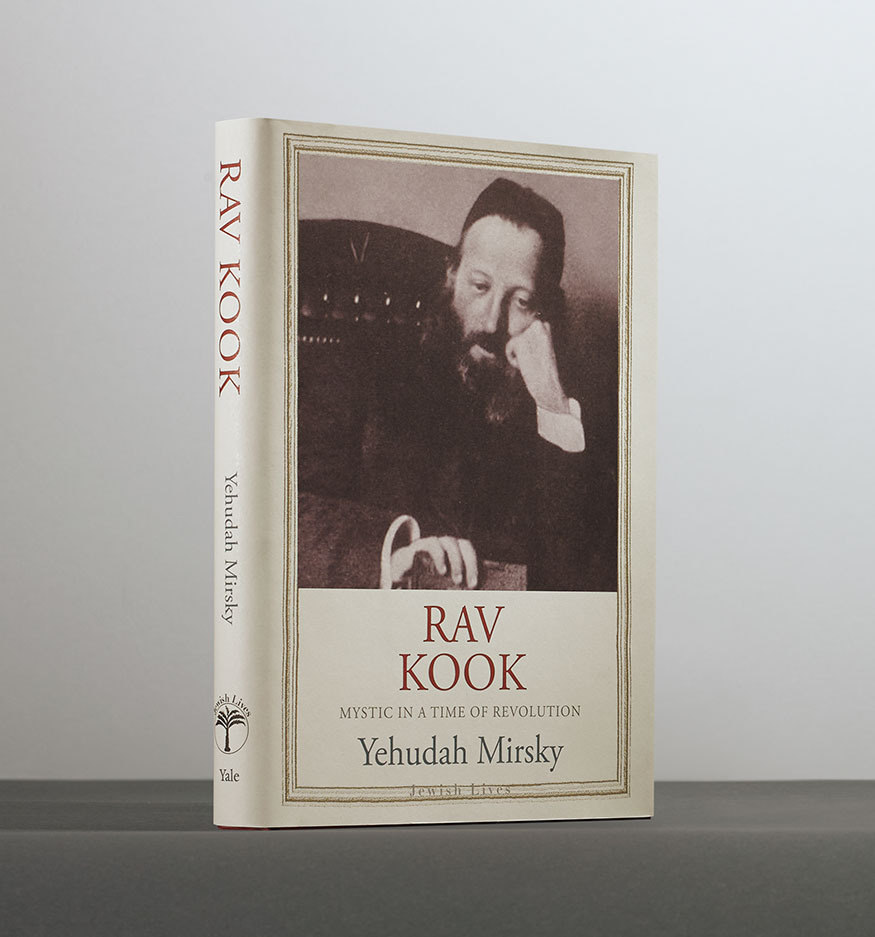
By Yehudah Mirsky
Published February 11, 2014
288 pages
“Learned, luminous and uncannily timely” —Jewish Review of Books
Rav Abraham Isaac Kook (1865–1935) was one of the most influential—and controversial—rabbis of the twentieth century. A visionary writer and outstanding rabbinic leader, Kook was a philosopher, mystic, poet, jurist, communal leader, and veritable saint. The first chief rabbi of Jewish Palestine and the founding theologian of religious Zionism, he struggled to understand and shape his revolutionary times. His life and writings resonate with the defining tensions of Jewish life and thought.
A powerfully original thinker, Rav Kook combined strict traditionalism and an embrace of modernity, Orthodoxy and tolerance, piety and audacity, scholasticism and ecstasy, and passionate nationalism with profound universalism. Though little known in the English-speaking world, his life and teachings are essential to understanding current Israeli politics, contemporary Jewish spirituality, and modern Jewish thought. This biography, the first in English in more than half a century, offers a rich and insightful portrait of the man and his complex legacy. Yehudah Mirsky clears away widespread misunderstandings of Kook’s ideas and provides fresh insights into his personality and worldview. Mirsky demonstrates how Kook's richly erudite, dazzlingly poetic writings convey a breathtaking vision in which “the old will become new, and the new will become holy.”
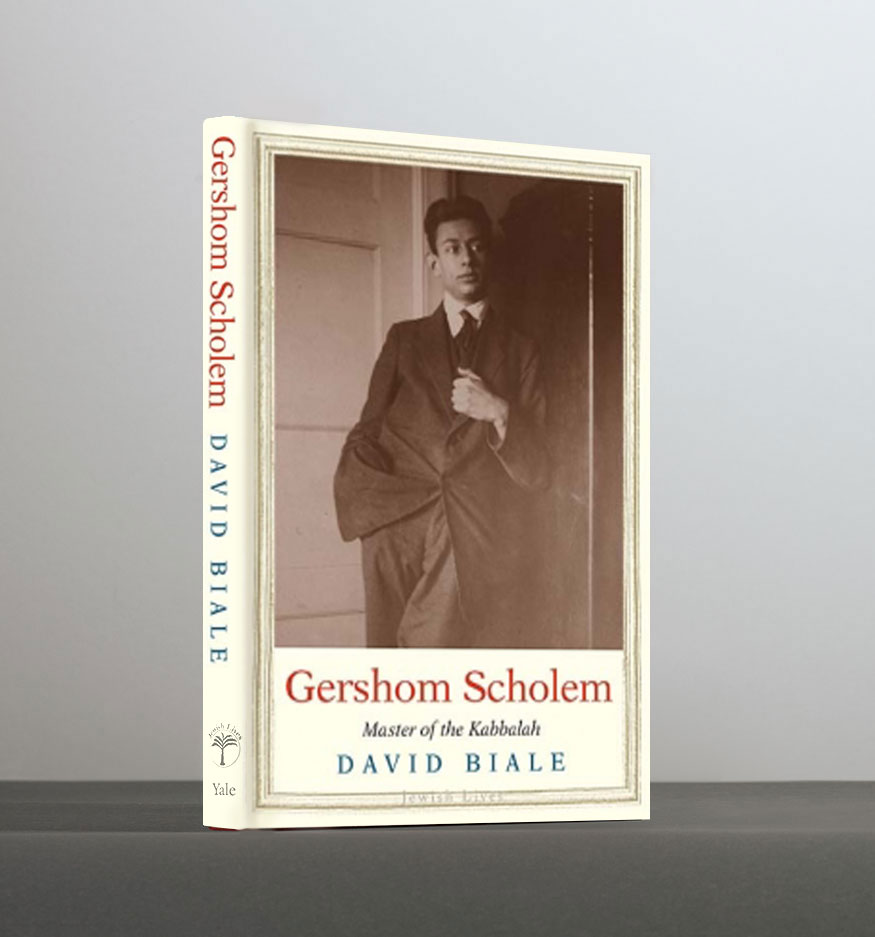
By David Biale
Published June 19, 2018
256 pages
"A superb, much-awaited biography.” —Steven Aschheim
A new biography of the seminal twentieth-century historian and thinker who pioneered the study of Jewish mysticism and profoundly influenced the Zionist movement
Gershom Scholem (1897–1982) was perhaps the foremost Jewish intellectual of the twentieth century. Pioneering the study of Jewish mysticism as a legitimate academic discipline, he overturned the rationalist bias of his predecessors and revealed an extraordinary world of myth and messianism. In his youth, he rebelled against the assimilationist culture of his parents and embraced Zionism as the vehicle for the renewal of Judaism in a secular age. He moved to Palestine in 1923 and participated in the creation of the Hebrew University, where he was a towering figure for nearly seventy years.
David Biale traces Scholem’s tumultuous life of political activism and cultural criticism, including his falling-out with Hannah Arendt over the Eichmann trial. Mining a rich trove of diaries, letters, and other writings, Biale shows that his subject’s inner life illuminates his most important writings. Scholem emerges as a passionately engaged man of his times—a period that encompassed two world wars, the rise of Nazism, and the Holocaust.
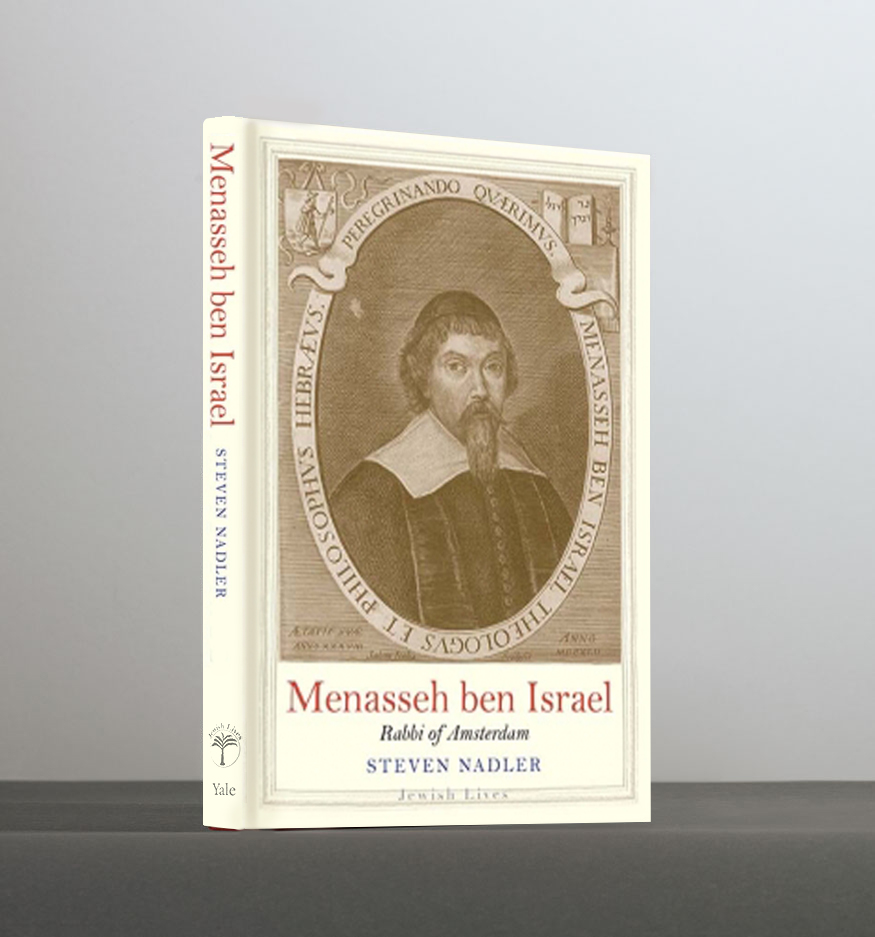
By Steven Nadler
Published August 21, 2018
312 pages
“Truly excellent” —Jonathan Israel
An illuminating biography of the great Amsterdam rabbi and celebrated popularizer of Judaism in the seventeenth century
Menasseh ben Israel (1604–1657) was among the most accomplished and cosmopolitan rabbis of his time, and a pivotal intellectual figure in early modern Jewish history. He was one of the three rabbis of the “Portuguese Nation” in Amsterdam, a community that quickly earned renown worldwide for its mercantile and scholarly vitality.
Born in Lisbon, Menasseh and his family were forcibly converted to Catholicism but suspected of insincerity in their new faith. To avoid the horrors of the Inquisition, they fled first to southwestern France, and then to Amsterdam, where they finally settled. Menasseh played an important role during the formative decades of one of the most vital Jewish communities of early modern Europe, and was influential through his extraordinary work as a printer and his efforts on behalf of the readmission of Jews to England. In this lively biography, Steven Nadler provides a fresh perspective on this seminal figure.
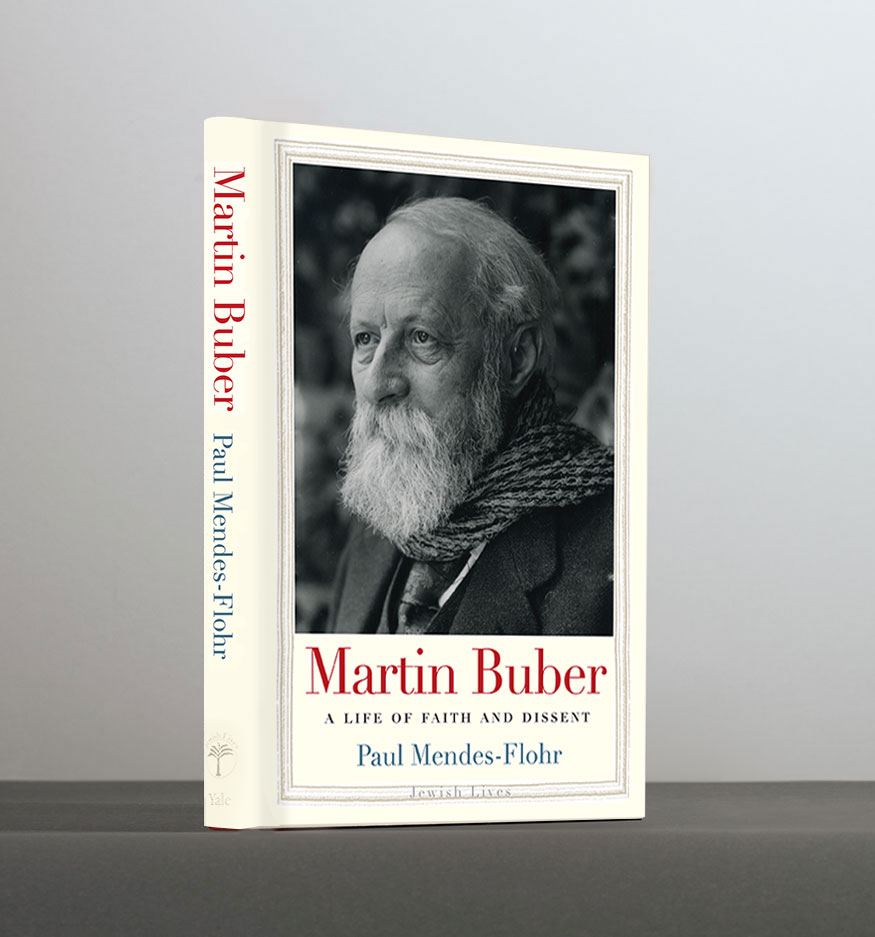
By Paul Mendes-Flohr
Published March 26, 2019
440 pages
“Exquisite” —Amir Eshel
The first major biography in English in over thirty years of the seminal modern Jewish thinker Martin Buber
An authority on the twentieth-century philosopher Martin Buber (1878–1965), Paul Mendes-Flohr offers the first major biography in English in thirty years of this seminal modern Jewish thinker. Organized around several key moments—such as his sudden abandonment by his mother when he was a child of three—Mendes-Flohr shows how this foundational trauma left an enduring mark on Buber’s inner life, attuning him to the fragility of human relations and the need to nurture them with what he would call a “dialogical attentiveness.”
Buber’s philosophical and theological writings, most famously I and Thou, made significant contributions to religious and Jewish thought, philosophical anthropology, biblical studies, political theory, and Zionism. In this accessible new biography, Mendes-Flohr situates Buber’s life and legacy in the intellectual and cultural life of German Jewry as well as in the broader European intellectual life of the first half of the twentieth century.
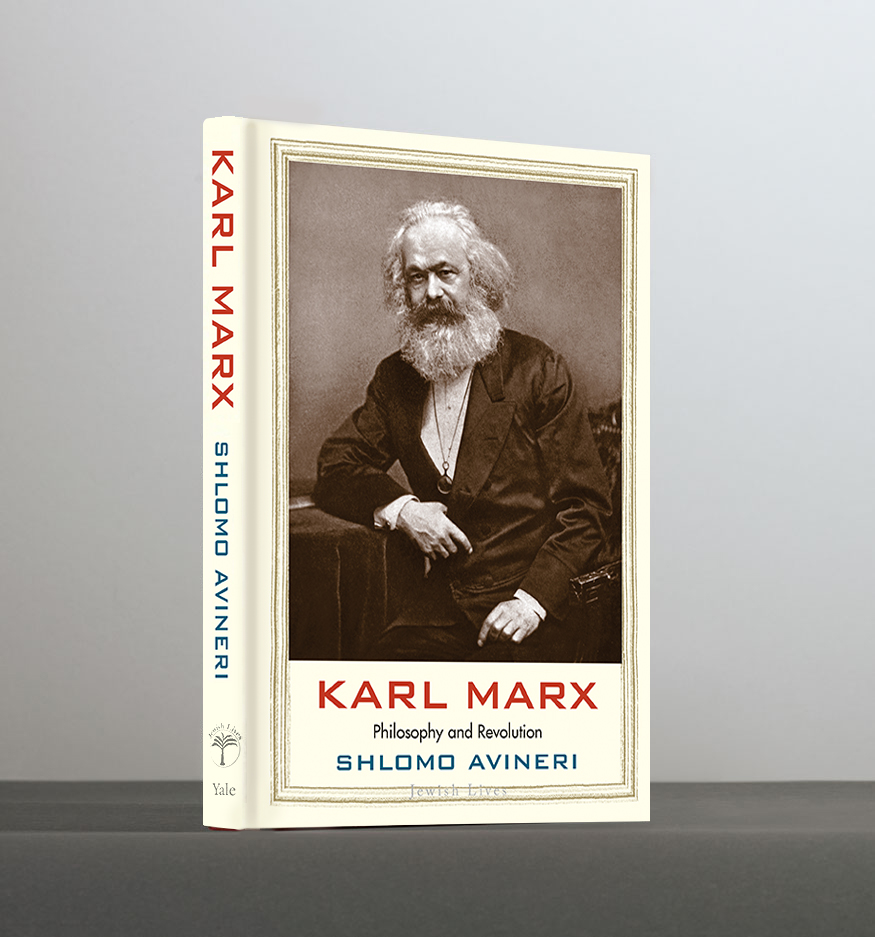
By Shlomo Avineri
Published August 6, 2019
240 pages
“A pleasure to read” —Michael Walzer
A new exploration of Karl Marx's life through his intellectual contributions to modern thought
Karl Marx (1818–1883)—philosopher, historian, sociologist, economist, current affairs journalist, and editor—was one of the most influential and revolutionary thinkers of modern history, but he is rarely thought of as a Jewish thinker, and his Jewish background is either overlooked or misrepresented. Here, distinguished scholar Shlomo Avineri argues that Marx’s Jewish origins did leave a significant impression on his work. Marx was born in Trier, then part of Prussia, and his family had enjoyed equal rights and emancipation under earlier French control of the area. But then its annexation to Prussia deprived the Jewish population of its equal rights. These developments led to the reluctant conversion of Marx’s father, and similar tribulations radicalized many young intellectuals of that time who came from a Jewish background.
Avineri puts Marx’s Jewish background in its proper and balanced perspective, and traces Marx’s intellectual development in light of the historical, intellectual, and political contexts in which he lived.
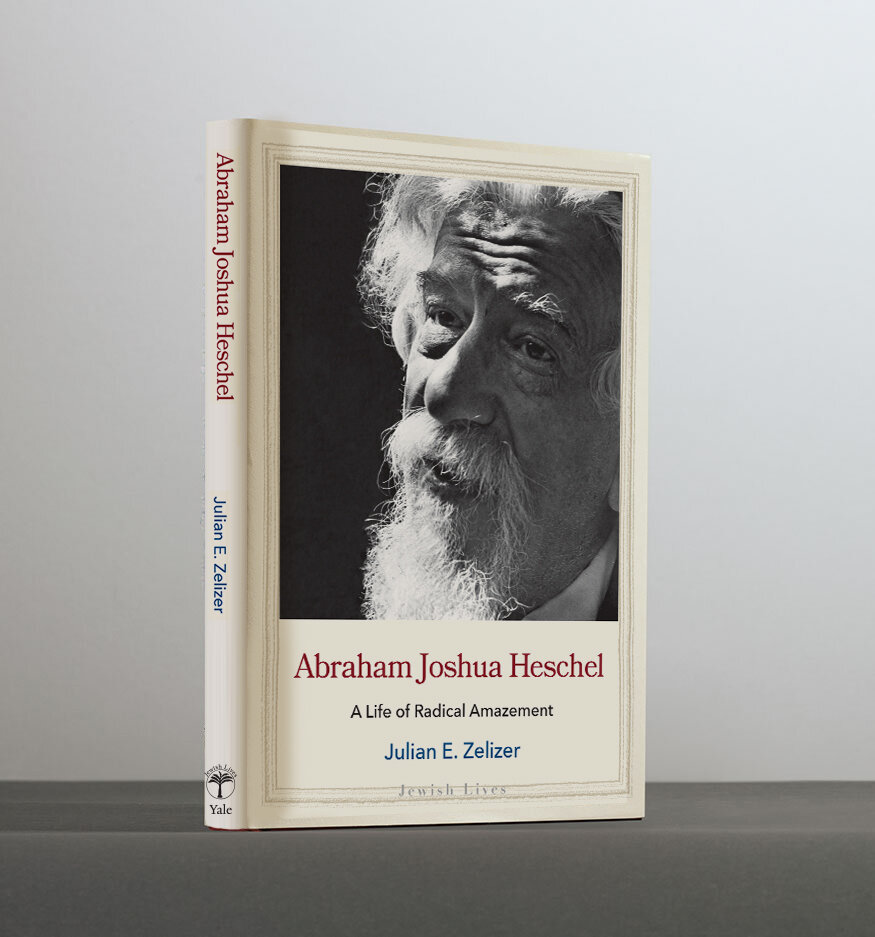
By Julian E. Zelizer
Published October 26, 2021
328 pages
“Elegant” —Rabbi David Wolpe
A biography of the rabbi Abraham Joshua Heschel, who became a symbol of the marriage between religion and social justice
“When I marched in Selma, I felt my legs were praying.” So said Polish-born American rabbi Abraham Joshua Heschel (1907–1972) of his involvement in the 1965 Selma civil rights march alongside Martin Luther King Jr. Heschel, who spoke with a fiery moralistic fervor, dedicated his career to the struggle to improve the human condition through faith. In this new biography, author Julian Zelizer tracks Heschel’s early years and foundational influences—his childhood in Warsaw and early education in Hasidism, his studies in late 1920s and early 1930s Berlin, and the fortuitous opportunity, which brought him to the United States and saved him from the Holocaust, to teach at Hebrew Union College and the Jewish Theological Seminary. This deep and complex portrait places Heschel at the crucial intersection between religion and progressive politics in mid-twentieth-century America. To this day Heschel remains a symbol of the fight to make progressive Jewish values relevant in the secular world.

By Alberto Manguel
Published March 21, 2023
256 pages
“Illuminating” —Publishers Weekly
An exploration of Maimonides, the medieval philosopher, physician, and religious thinker, author of The Guide of the Perplexed, from one of the world’s foremost bibliophiles
Moses ben Maimon, or Maimonides (1138–1204), was born in Córdoba, Spain. The gifted son of a judge and mathematician, Maimonides fled Córdoba with his family when he was thirteen due to Almohad persecution of all non-Islamic faiths. Forced into a long exile, the family spent a decade in Spain before settling in Morocco. From there, Maimonides traveled to Palestine and Egypt, where he died at Saladin’s court.
As a scholar of Jewish law, a physician, and a philosopher, Maimonides was a singular figure. His work in extracting all the commanding precepts of Jewish law from the Hebrew Bible and the Talmud, interpreting and commenting on them, and translating them into terms that would allow students to lead sound Jewish lives became the model for translating God’s word into a language comprehensible by all. His work in medicine—which brought him such fame that he became Saladin’s personal physician—was driven almost entirely by reason and observation.
In this biography, Alberto Manguel examines the question of Maimonides’ universal appeal—he was celebrated by Jews, Arabs, and Christians alike. In our time, when the need for rationality and recognition of the truth is more vital than ever, Maimonides can help us find strategies to survive with dignity in an uncertain world.

By Ian Buruma
Published February 13, 2024
216 pages
“Splendid” —Avishai Margalit
Ian Buruma explores the life and death of Baruch Spinoza, the Enlightenment thinker whose belief in freedom of thought and speech resonates in our own time
Baruch (Benedictus) Spinoza (1632–1677) was a radical free thinker who led a life guided by strong moral principles despite his disbelief in an all-seeing God. Seen by many—Christians as well as Jews—as Satan’s disciple during his lifetime, Spinoza has been regarded as a secular saint since his death. Many contradictory beliefs have been attached to his name: rationalism or metaphysics, atheism or pantheism, liberalism or despotism, Jewishness or anti-Semitism. However, there is no question that he viewed freedom of thought and speech as essential to an open and free society.
In this insightful account, the award-winning author Ian Buruma stresses the importance of the time and place that shaped Spinoza, beginning with the Sephardim of Amsterdam and followed by the politics of the Dutch Republic. Though Spinoza rejected the basic assumptions of his family’s faith, and was consequently expelled from his Sephardic community, Buruma argues that Spinoza did indeed lead a Jewish life: a modern Jewish life. To Heine, Hess, Marx, Freud, and no doubt many others today, Spinoza exemplified how to be Jewish without believing in Judaism. His defense of universal freedom is as important for our own time as it was in his.
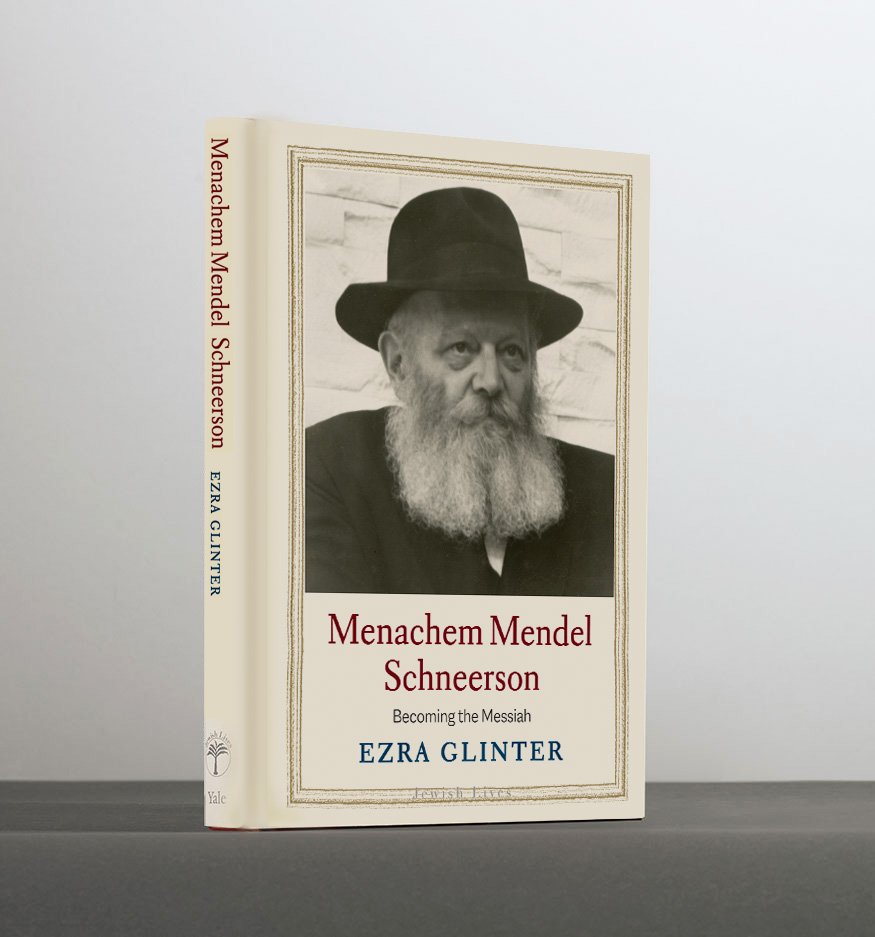
By Ezra Glinter
Published October 29, 2024
320 pages
"Exceptional" —Kirkus Reviews (starred review)
The life and thought of Menachem Mendel Schneerson, one of the most influential—and controversial—rabbis in modern Judaism
The Chabad-Lubavitch movement, one of the world’s best-known Hasidic groups, is driven by the belief that we are on the verge of the messianic age. The man most recognized for the movement’s success is the seventh and last Lubavitcher rebbe, Menachem Mendel Schneerson (1902–1994), believed by many of his followers to be the Messiah.
While hope of redemption has sustained the Jewish people through exile and persecution, it has also upended Jewish society with its apocalyptic and anarchic tendencies. So it is not surprising that Schneerson’s messianic fervor made him one of the most controversial rabbinic leaders of the twentieth century. How did he go from being an ordinary rabbi’s son in the Russian Empire to achieving status as a mystical sage? How did he revitalize a centuries-old Hasidic movement, construct an outreach empire of unprecedented scope, and earn the admiration and condemnation of political, communal, and religious leaders in America and abroad?
Ezra Glinter’s deeply researched account is the first biography of Schneerson to combine a nonpartisan view of his life, work, and impact with an insider’s understanding of the ideology that drove him and that continues to inspire the Chabad-Lubavitch movement today.